Recent News
Catch up on the latest BioSci news, features and videos by subscribing to the School of Biological Sciences Newsletter.
-
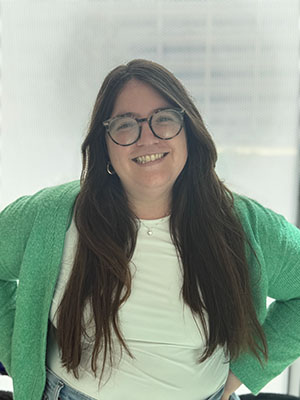
Carolina Chiale Selected to Receive Postdoctoral Award from Lupus Research Alliance
UC San Diego School of Biological Sciences’ Carolina Chiale, a postdoctoral scholar in Department of Molecular Biology Professor Elina Zúñiga’s laboratory, has been selected to receive an award from the Lupus Research Alliance.
-
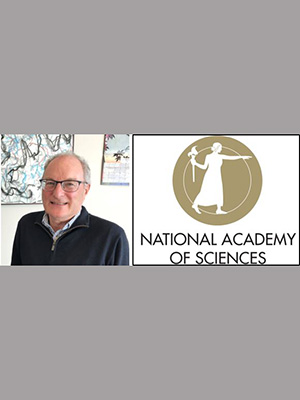
Cornelis Murre Elected to the National Academy of Sciences
The Department of Molecular Biology professor joins one of the world’s most prominent scientific societies
The National Academy of Sciences (NAS) has announced that UC San Diego Professors Russell Impagliazzo, Cornelis Murre and Elizabeth Winzeler have been selected as new members. NAS membership represents one of the most distinguished honors for U.S. scientists and engineers.
-
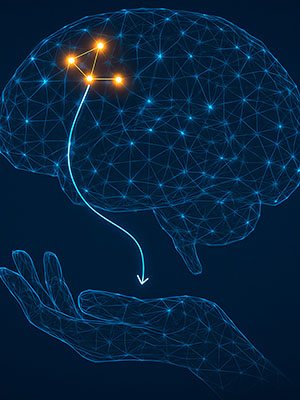
Neuroscientists Pinpoint Where (and How) Brain Circuits Are Reshaped as We Learn New Movements
Discovery of physical modifications across brain regions holds important clues for possible new therapies for brain disorders
Brain researchers have identified a bridge between the thalamus and the cortex as the key area that is modified during motor learning functions. They found that such learning does much more than adjust activity levels, it sculpts the circuit’s wiring, refining the conversation between brain regions.
-

Six UC San Diego Faculty Members Join Prestigious American Academy of Arts and Sciences
Six professors from the University of California San Diego have been elected in 2025 to the American Academy of Arts and Sciences, one of the nation’s most prestigious honor societies.
-

Federally Funded Research Nourishes and Protects America
“When America invests in science, we invest in a brighter, healthier future"
Scientific research may seem abstract, but when supported by federal funding, it profoundly impacts every American — from quiet rural fields buzzing with pollinators to hospitals pioneering lifesaving cancer therapies.
-
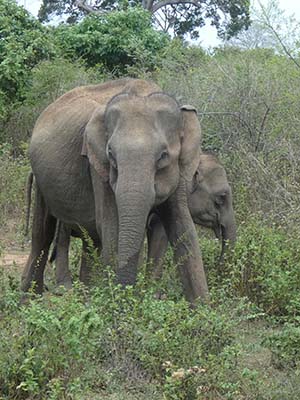
Paving a Path to Conserving Wild Elephant Populations
Shermin de Silva researches the ecology, social dynamics and communication of elephants. In recognition of Earth Day 2025, de Silva provides an inside look at a new book she has published on elephant behavior and conservation, along with questions to consider to protect their future.
-
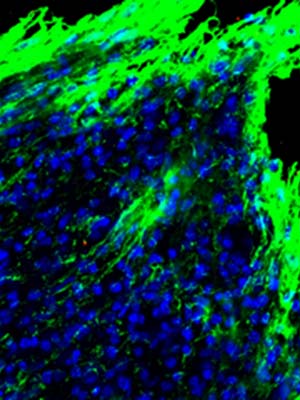
Gene Identified That Blocks Healing after Spinal Cord Injury
With no approved therapies for spinal cord injuries, scientists are looking into the body’s healing mechanisms for clues on recovery. Researchers found that a gene named RYK inhibits wound healing, offering hope for new treatments for paralysis after spinal cord injury.
-
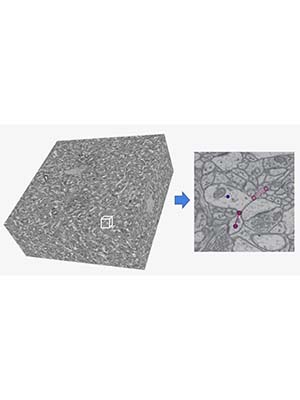
Researchers Develop an LSD Analogue with Potential for Treating Schizophrenia
UC San Diego biologist’s lab is the first to apply modern 3D electron microscopy techniques to psychedelic-treated brain tissue
Researchers have developed a new drug closely related to LSD that harnesses the psychedelic’s therapeutic power with reduced hallucinogenic potential. The research highlights the new drug’s potential as a safer and more effective treatment option for conditions like schizophrenia.
-
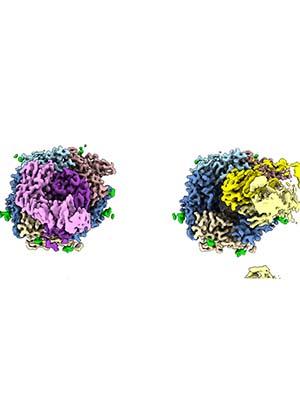
Advanced Imaging Reveals Mechanisms That Cause Autoimmune Disease
Those who suffer myasthenia gravis experience muscle weakness that can affect the muscles we use to blink, smile and move our bodies. Researchers at UC San Diego’s School of Biological Sciences used a cutting-edge imaging technique to uncover new details about the mechanisms underlying the disease.
-
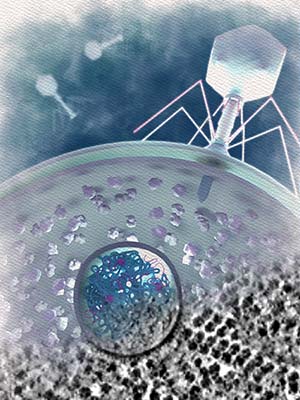
Virus Infects Cells with a Protective Cloaking Mechanism
Discovery of jumbo phage’s stealth compartment could be leveraged to engineer new therapies to treat antibacterial-resistant infections
Viruses known as “jumbo phage” are a new hope against the rising antibacterial infection crisis. Researchers have discovered how jumbo phage are able to infect bacteria so efficiently. They found a compartment that protects and hides valuable DNA material from the bacteria’s immune defense system.
To read more about the School of Biological Sciences happenings, see the News Archives.
